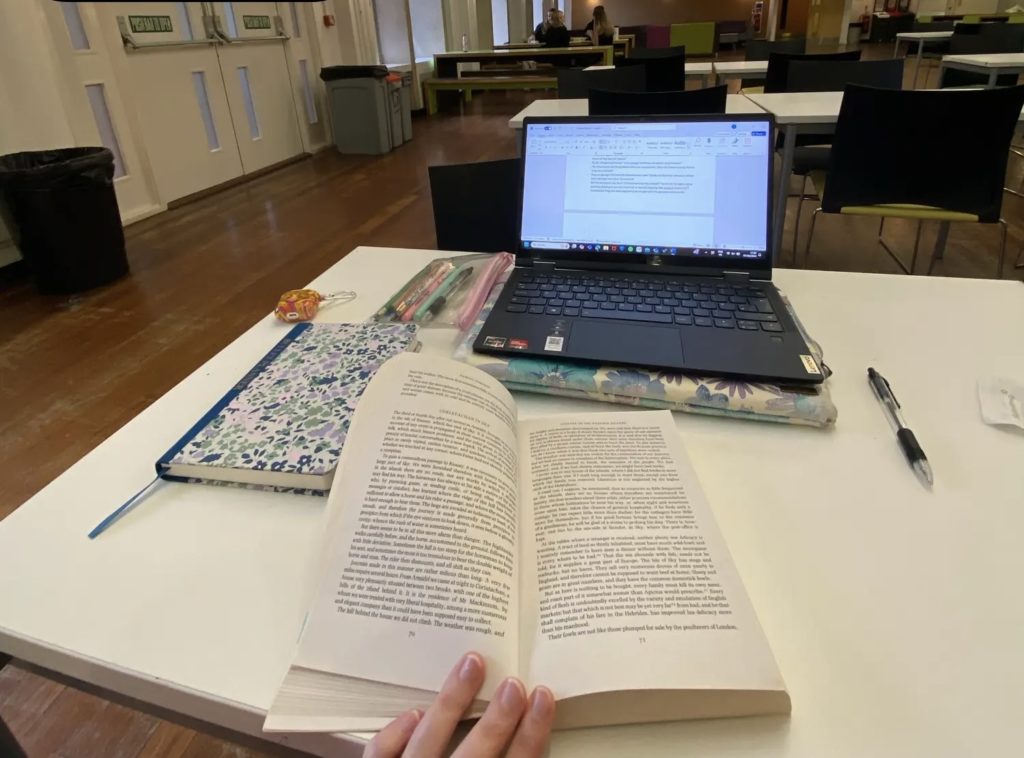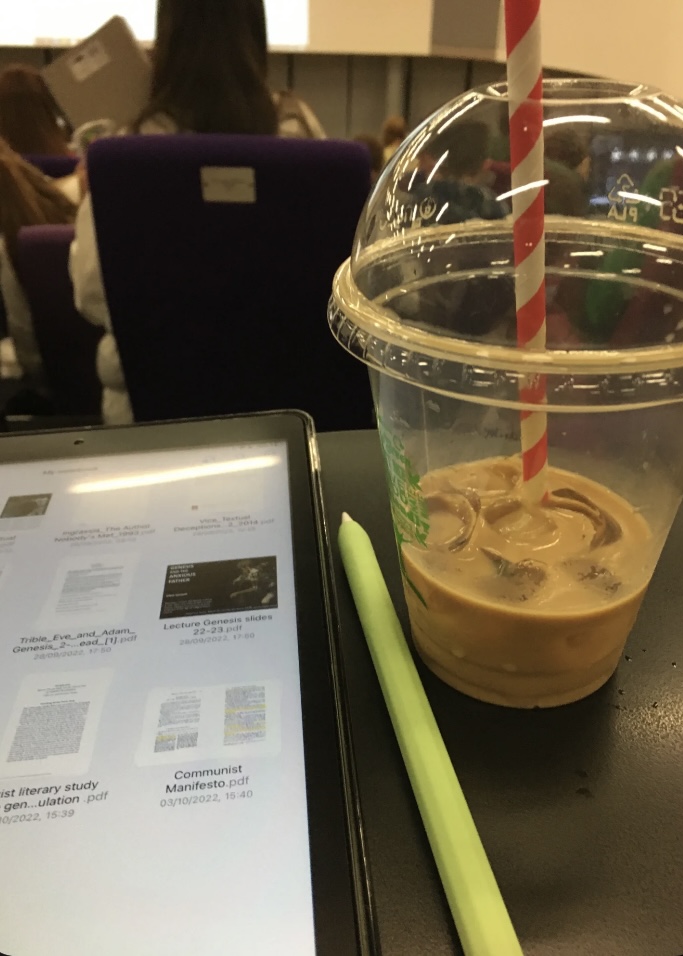Hello everyone! It’s Lucy here. Throughout my (almost) three years studying BA English at the University of Exeter, I have found a few ways to tailor my degree to how I enjoy learning, which includes making module choices that suit my individual interests and goals. This allows you to make the course “yours” and to explore different areas that might benefit you personally and benefit your future career. For example, Exeter offers modularity, in which students may take up to 30 credits a year outside their main degree subjects, once they have met the compulsory requirements of their main subjects.
In my second year, I used modularity to take a 30-credit module in Communications, primarily because I was considering the possibility of a career in the media sector, such as writing for a digital publication. I had enjoyed studying media in school and knew that this module incorporated similar themes and theories as studying English, except with a focus on news journalism, marketing and even video games. It brought variety and complimented my other choices well, as these spanned across a range of historical periods and types of literature.

You can choose modules outside of your regular degree easily through the Online Module Selection platform, which you gain access to just before the beginning of first term. Some modules will already be listed under “Modularity” (usually if they are in the same faculty, like English and Film) and can be chosen straight away, whereas you may need to request others through a module change once term begins. In this case, you must make selections first of what you would study otherwise and, once they are confirmed, you can change 30 credits of these to your desired choice.
When I completed the module change form in September, I received a response within a few days about whether space was available on the module I’d selected. Once my subject hub had processed the form, this was automatically changed on my timetable, therefore I had no issues managing it alongside my other studies.
If you’re unsure whether it’s possible to take a module from outside of your regular programme, the University recommends discussing this with your academic tutor as they can advise you on your options. A full guide to programmes and modules can be found here.
Humanities subjects lend well to this flexible structure, in my opinion, as they often draw on similar knowledge and skills. The module I chose required me to produce a portfolio of writing and a reflective essay which played to the strengths I had developed from studying English. Other people on the module were from courses such as History and even Biology and had chosen it as a way to improve their writing skills. I actually think this improved the experience as everyone brought creative ideas and diverse perspectives to the class. It is common for students in these classes to come from other departments, which makes venturing into a new subject less intimidating.

Therefore, if there was a subject you particularly enjoyed studying before university or want to pursue an additional interest, such as learning a language, modularity can enhance your degree by allowing you to pursue this at a higher academic level. However, you do not necessarily have to choose modules related to what you’ve studied before. Many people take modules in subjects considered to be completely different from their degree subject – I know someone who takes French alongside a Computer Science degree!
This variation can make you stand out to potential employers as you bring unique strengths, showing that you can adapt to new approaches and try things outside of your comfort zone. I have often used examples from my experience of the Communications module in job applications to show my broader interest in media and how I would apply my knowledge from the module to the workplace.
It can be worth putting aside some time to read the module descriptors carefully, despite how busy you might be during term time, to consider all of the options you are offered. This way you can also see if you need to meet any prerequisites to take the module that you’re interested in.
Knowing that you have the opportunity to expand your single-honours degree into different areas is exciting. This can reflect changing aspirations – as I realised that I enjoyed studying more contemporary aspects of literature that related to the world around me, and started writing for student media, I began to approach my degree as something I could shape around what I wanted to do after graduation. You don’t need to be limited by what you expected to study when you first started university. It’s impossible to love everything you study during your degree as it is meant to challenge you, but you can adapt your academic experience to get the most out of it.
For prospective students looking to study opposing or unique subject combinations in more depth, the University also offers Flexible Combined Honours (FCH) degrees to incorporate combinations of subjects that might not traditionally be studied together as Combined Honours. This allows you to study a bespoke programme across two or three disciplines in different departments. Eloise talks about her typical day studying both Film and Television and Geography in this blog.
At university it can be easy to overlook everything that’s available to you, so I hope this blog is a helpful guide to using modularity to maximise the flexibility of your Exeter degree!

